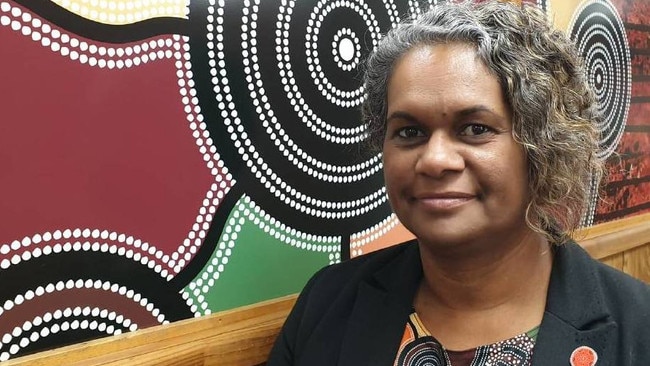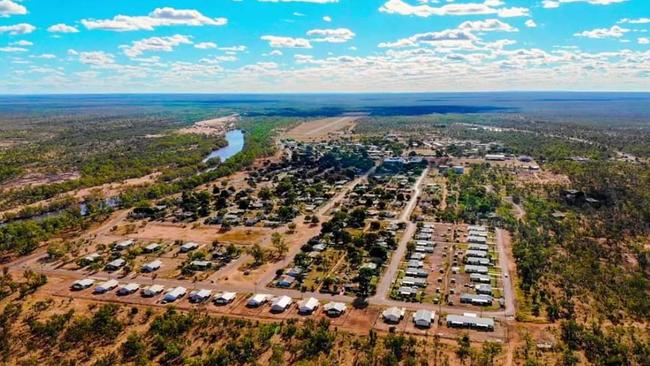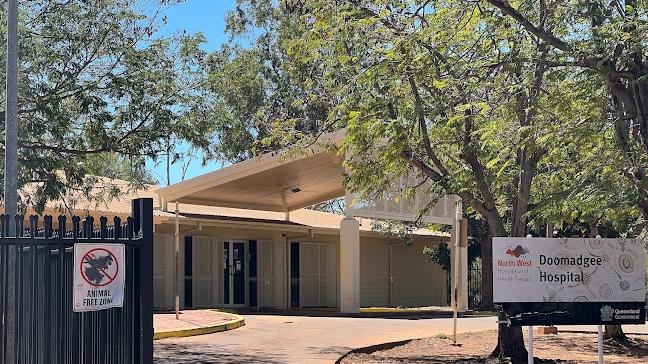Inquest into deaths of three Doomadgee women hears of critical record keeping failures
An 18-year-old woman with severe rheumatic heart disease went to Doomadgee Hospital a day before she died and was handed Panadol through a Crim Safe mesh window, and sent home.
Cairns
Don't miss out on the headlines from Cairns. Followed categories will be added to My News.
An 18-year-old woman with severe rheumatic heart disease (RHD) who went to Doomadgee Hospital a day before she died was given paracetamol, not examined by a doctor, and told to go to the Aboriginal Community Controlled Health Service Gidgee Healing the next day, an inquest has found.
Northern Coroner Nerida Wilson handed down her findings into the deaths of Betty, 18, Ms Sandy, 37, and Kaya, 17, in Cairns on Friday, finding there was inadequate care, a lack of record sharing between health organisations and a lack of cultural competency.
Ms Wilson said while there was no record of Betty going to the hospital that night, she “found it more probable than not … and that no clinical record was made. There is support that the hospital was not keeping adequate records”.

Betty’s RHD was picked up in a routine RHD school screening program two months before her death and she was told she would need monthly bicillin injections and cardiac surgery.
A cardiologist who examined her believed the ECG results would be enough evidence of the need for surgery – but there was no record of it at Gidgee Healing or Doomadgee Hospital.
Betty was seen at Gidgee Healing on July 26 and registered as a new client.
She went to hospital with a fever and cough on July 30 and returned the following night.
She went to hospital on August 1 and her mother said she was coughing up blood.
Then medical superintendent Dr Craig Hamilton was contacted and prescribed antibiotics, and told the inquest if he’d known she was coughing up blood he would have seen her.
She went to hospital again on August 4 and her mother told Dr Hamilton she was scheduled for cardiac valve replacement surgery – this was the first Dr Hamilton had heard of this, the inquest heard.

In her findings, Ms Wilson said Dr Hamilton could not find any record of scheduled surgery or even of a diagnosis of RHD despite contacting three hospitals, to no avail, and the nurse unit manager said it was being co-ordinated by Gidgee.
Dr Hamilton asked for the information and said he was not able to confidently diagnose Betty without it, and he completed an incident report about the lack of documentation.
The cardiologist responded with all the information, but Dr Hamilton had left on August 5 for days off – and he lost his job on August 13.
Ms Wilson said it could be inferred critical information did not make its way into Betty’s hospital file.
“If that is the case it is a fundamental failing by the NWHHS to ensure that relevant patient information received to Dr Hamilton’s email address was not triaged and actioned … that information proved to be critical,” Ms Wilson said.

On August 6, a nurse asked if Betty needed to be reviewed by a doctor and was told no because there was no paperwork available.
The cardiologist believed Doomadgee Hospital would recognise the bloodstained phlegm as a potential sign of congestive cardiac failure.
On August 19, Betty went to both Gidgee and the hospital, and on August 23 plans were made for her to be seen by a Townsville cardiologist.
A friend walked Betty to hospital on September 22, when she was given paracetamol.
She went back to hospital on September 23, where an ECG revealed a high and irregular heartbeat.
Locum Dr Mary Anderson arrived at Doomadgee at 3pm that day, and met the outgoing doctor, who was “rushing out the door”, and while he said Betty had a fever and fast heart rate, there was no formal handover
Giving evidence, the outgoing doctor said he did not recall reviewing Betty, but said he was aware she was in the emergency department.

Dr Anderson couldn’t access electronic medical records because the computer wasn’t working, which was often the case, the inquest heard.
She spoke with the cardiologist, who agreed Betty was in symptomatic heart failure, and she arranged for Betty to be flown urgently to Mt Isa.
At 5.15pm Betty deteriorated further, the cardiologist recommended she be put on a continuous positive airway machine and her destination was changed to Townsville, with the plane leaving at 6.24pm for the two hour flight.
But by 6.30pm, Betty was flat lining and specialist emergency physician Dr Richard Brown, in Townsville, co-ordinated resuscitation.
At 7.45pm, Dr Brown said to stop CPR.
The plane arrived an hour later.
In the week after Betty’s death, Dr Anderson arranged two meetings with staff, Betty’s family and elders.
Ms Wilson said Dr Anderson continued to work in remote communities but struggled to return to Doomadgee because she felt trust had been broken.
“She did all that she could in the circumstances ... Dr Anderson inherited a shocking medical situation and has been deeply affected by the circumstances of Betty’s death,” Ms Wilson said.
A doctor retained by the court said the capacity of Doomadgee Hospital to provide adequate care for Betty was undermined by lack of information about her diagnosis, noting that Gidgee Healing had the information.
More Coverage
Originally published as Inquest into deaths of three Doomadgee women hears of critical record keeping failures




